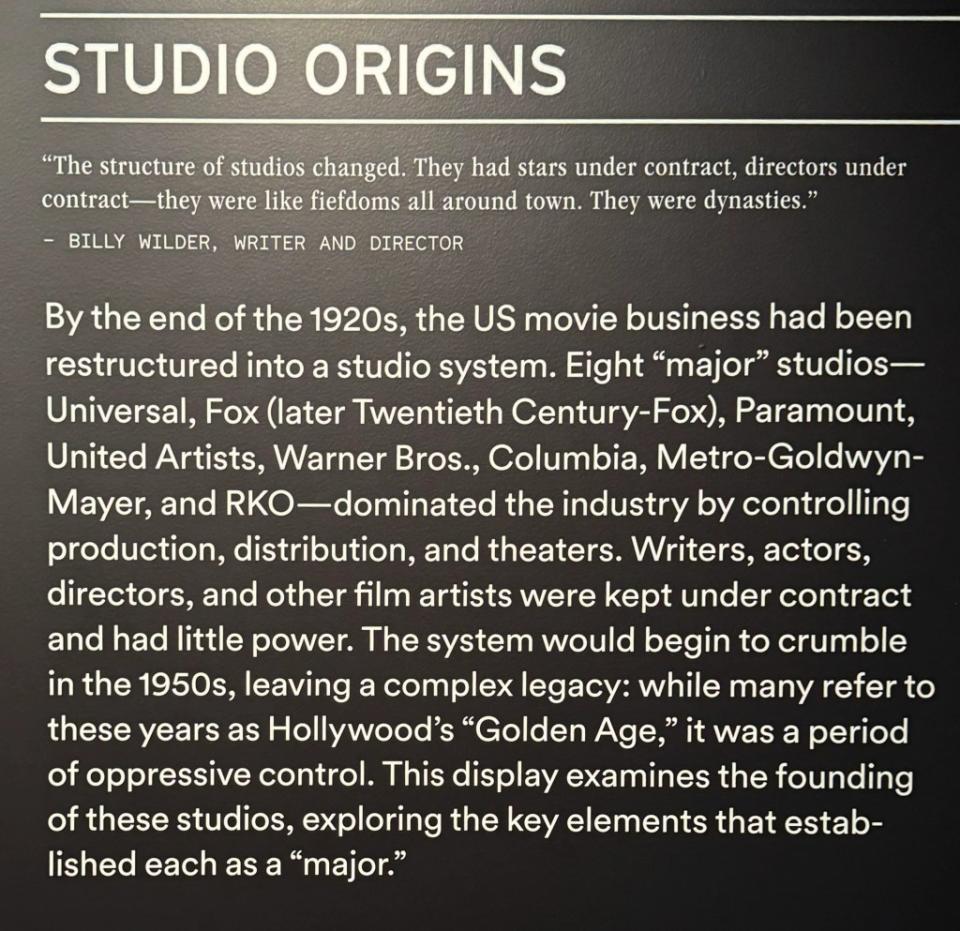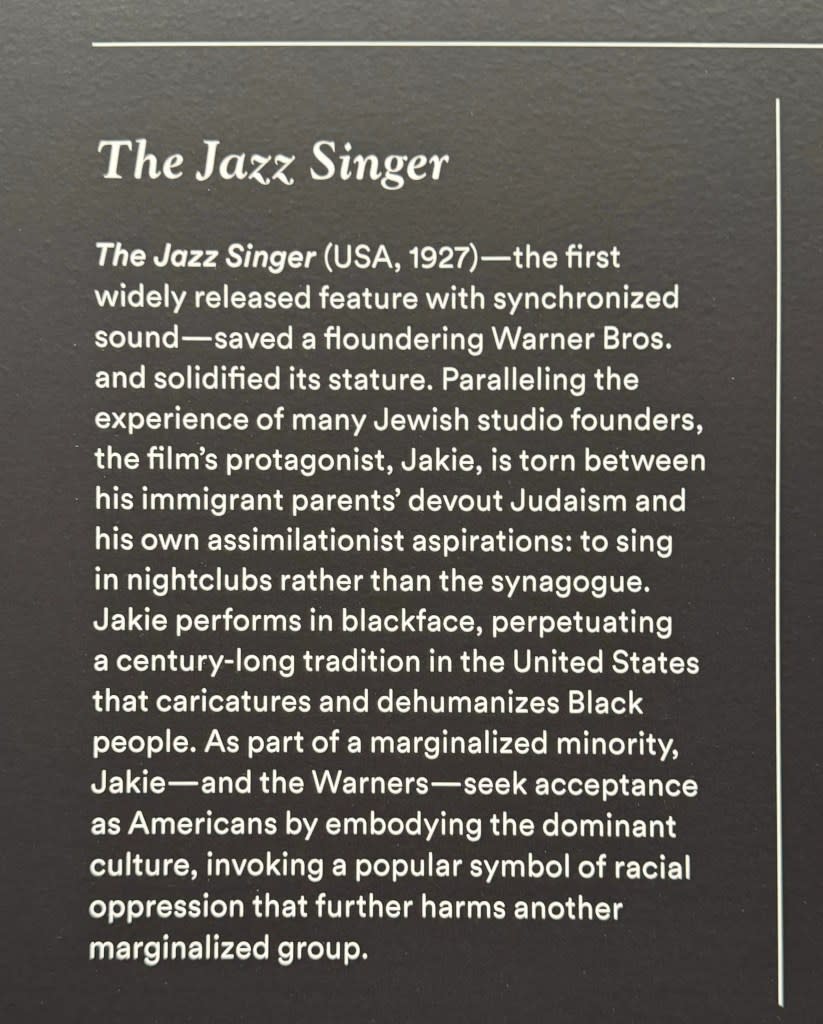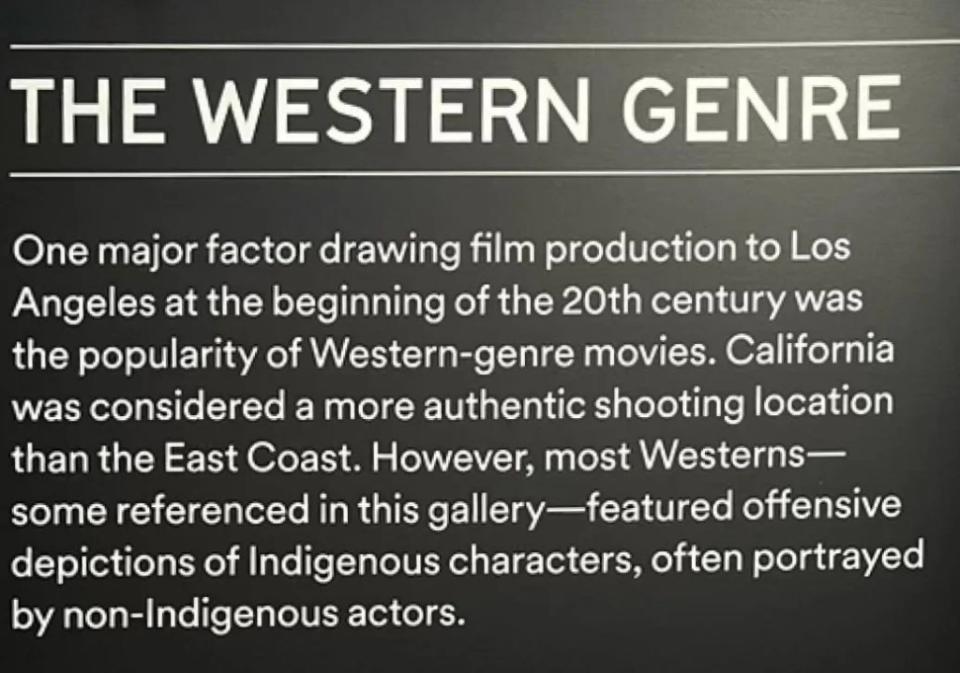Motion Picture Academy Vows to ‘Thoughtfully’ Address Criticism of ‘Antisemitic Tropes’ in Exhibit on Jewish Founders | Exclusive
The Academy of Motion Picture Arts and Sciences has pledged to “move quickly and thoughtfully” to address criticism of a new Academy museum exhibit dedicated to the Jewish founders of Hollywood as perpetuating “antisemitic tropes” and focusing on the founders’ flaws rather than their achievements.
In a statement to TheWrap on Monday, the Academy acknowledged the criticism from multiple Jewish members and promised to make adjustments:
“Some members of the Jewish community have come forward to express some concerns, and [we] are looking at how to address those concerns best while continuing to share an authentic understanding of these complex individuals and the time they lived in,” the statement read. “As part of this process, we are continuing to engage with the community members who have come forward with constructive feedback and welcome these conversations. We hope to move quickly and thoughtfully in this process.”
A series of explosive letters to AMPAS leadership by prominent Jewish members in the last two weeks criticized the exhibit for taking pains to point out Jewish founders’ flaws with terms like “oppressive,” “tyrant” “predator” and “frugal.”
The permanent exhibit “Hollywoodland: Jewish Founders and the Making of a Movie Capital” debuted in mid-May. It deals with studio founders including the Warner brothers, led by Jack (ne Jacob) and Harry (ne Hirsch Wonsal) Warner, and also includes Harry Cohn at Columbia, Marcus Loew and Louis B. Mayer at MGM and Jesse Lasky and Adolph Zukor at Paramount, among others. The exhibit was created in response to criticism that the $480 million museum that opened in 2021 had entirely omitted the Jews who had founded the industry.
“The focus is not on the founder’s achievements, but on their sins,” reads one of the letters addressed to AMPAS CEO Bill Kramer, Academy Museum President Jacqueline Stewart, who exited last week, and the exhibit’s curator, Dara Jaffe.
The letter by Patrick Moss, co-chair of the WGA Jewish Writers Committee, provided to TheWrap continued: “The words used to describe these men are the following: ‘frugal,’ ‘nepotistic,’ ‘harmful,’ ‘womanizing,’ ‘oppressive,’ ‘brash’ ‘tyrant,’ ‘cynical,’ ‘white-washed,’ ‘predator…’ and on it goes.
“THIS VERY EXHIBIT IS COMPLICIT in the hatred of American Jews, by using antisemitic tropes and dog-whistles.”
The scathing critique is one of six letters or articles obtained independently by TheWrap from prominent members of the Hollywood community, including Moss, filmmakers Kimberly Peirce, who is a member of the museum’s inclusivity committee, and Alma Ha’rel, who has resigned from the same committee, along with showrunner Keetgi Kogan and television writer Michael Kaplan. Kogan and Kaplan, in separate letters, reached remarkably similar conclusions about the exhibit. Andy Lewis similarly wrote about the issue in The Ankler over the weekend.
“You effectively lay the prejudice, racism and misogyny of the 20th century at the feet of the Jewish founders of the movie business,” wrote Kogan. “Your thesis seems to be that these Jewish immigrants were grasping social-climbers who chose to assimilate into American society on the backs of exploited women and people of colour. What’s more, you assert that it is these Jewish immigrants alone who created a fictitious version of America, whitewashed free of discrimination, for their own personal gain.”
She concluded: “It is almost as if, instead of celebrating the birth of the industry, the Academy is apologizing to the public for having to reveal a dark corner of its history it wishes it could have kept hidden.”
Ha’rel declined to comment for this story. Peirce did not respond to attempts to reach her for this article.
The Academy declined a request to speak to Jaffe about the intention behind the exhibit.

A visit to the exhibit reveals a narrow 30-foot gallery with panels dedicated to each of the studios that were founded in the first decades of the 20th century: Warner Bros., MGM, RKO, Universal, Paramount, Fox and Columbia, with descriptions of the Jewish men behind each of them. The letter-writers took issue with the text of the panels, which are in English and Spanish.
“It was a period of oppressive control,” reads the introductory panel on “Studio Origins,” explaining the studio system where eight majors “dominated the industry.”
Also in the exhibit:
* In a description of less than 100 words, Harry Cohn is described as “a tyrant and predator,” with an office modeled on “Italian dictator Benito Mussolini, built to intimidate anyone who entered.”
* Jack Warner is described “brash and irreverent” and a “womanizer” who was “frugal” in shaping the Warner Bros. culture.
* In the Universal panel, Carl Laemmle is described as rising from errand boy to running the studio, “where his kindness and nepotism earned him the moniker “Uncle Carl.”
* The 1927 movie “The Jazz Singer” starring Al Jolson is highlighted as the first widely released feature with synchronized sound. But the brief description calls out the movie’s “blackface, perpetuating a century-long tradition in the United States that caricatures and dehumanizes Black people.”


“I think there’s a certain amount of antisemitism, whether conscious or not, but also a presentism,” said Kaplan, in visiting the gallery with a reporter. “Some of this is valid, but the double standard and lack of context is infuriating to many of us.”
Kaplan pointed out that none of the other exhibits call out their subjects for criticism in this way. “This exhibit shows the villains,” he said. “Every other part of the museum shows the victims.”
Another critic who declined to be named was upset that the exhibit did not name any Jewish filmmakers who fled antisemitism, like director Billy Wilder, who became a legend of classic Hollywood cinema after fleeing Europe in 1934.
Even more ironic, the Academy of Motion Picture Arts and Sciences, the parent organization behind the museum, was originally conceived by Louis B. Mayer and created by a group of moguls and industry leaders in 1927.
As in many areas of the museum, a consciously progressive tone dominates, reminding the visitor of the ways that marginalized communities were absent from the movie industry, and where stereotypes perpetuated racist norms. For example, a brief, three-sentence panel that mentions the advent of Western movies makes sure to note: “However, most Westerns — some referenced in this gallery — featured offensive depictions of Indigenous characters, often portrayed by non-Indigenous actors.”

A documentary narrated by TCM host Ben Mankiewicz plays in a connecting space, and a large video map displays where the studios were built as they began to transform Los Angeles.
The documentary traces the humble beginnings of the Jewish studio founders, and notes the antisemitism that was widespread at the time. But it also notes that the moguls perpetuated racism, saying: “Hollywood films… generally excluded, stereotyped or vilified people of color and LGBT+ characters and perpetuated ableism and sexism with rare exceptions. In Hollywood, to become American was to adopt and reflect oppressive beliefs and representations.”
Hollywood philanthropist Haim Saban, whose name is on the main museum building after he and his wife Cheryl made a $50 million gift, the museum’s largest, said he was “very happy” with the exhibit and not bothered by its language or message.
“These people should say thank you to the Academy for recognizing the contribution of Jews to Hollywood,” he told TheWrap.
But Oscar-nominated producer Lawrence Bender also visited the galleries and emerged exasperated. The Jewish moguls who built Hollywood “loved movies, they loved making movies,” he said. “There’s no sense of that here.”
In a climate of rising antisemitism, he said, the exhibit seems to be an additional slap. “It feels like one more thing,” he said. “Are there more important things in the world? Sure. Is it the most important? Maybe not. But — it’s one more thing. And this museum is presenting history. What’s missing is a true love of cinema. Where does it say that they loved making movies?”
Editor’s note: This story was updated on June 3 at 9 pm.
The post Motion Picture Academy Vows to ‘Thoughtfully’ Address Criticism of ‘Antisemitic Tropes’ in Exhibit on Jewish Founders | Exclusive appeared first on TheWrap.


